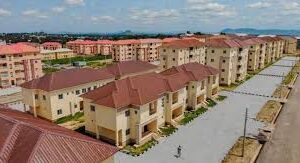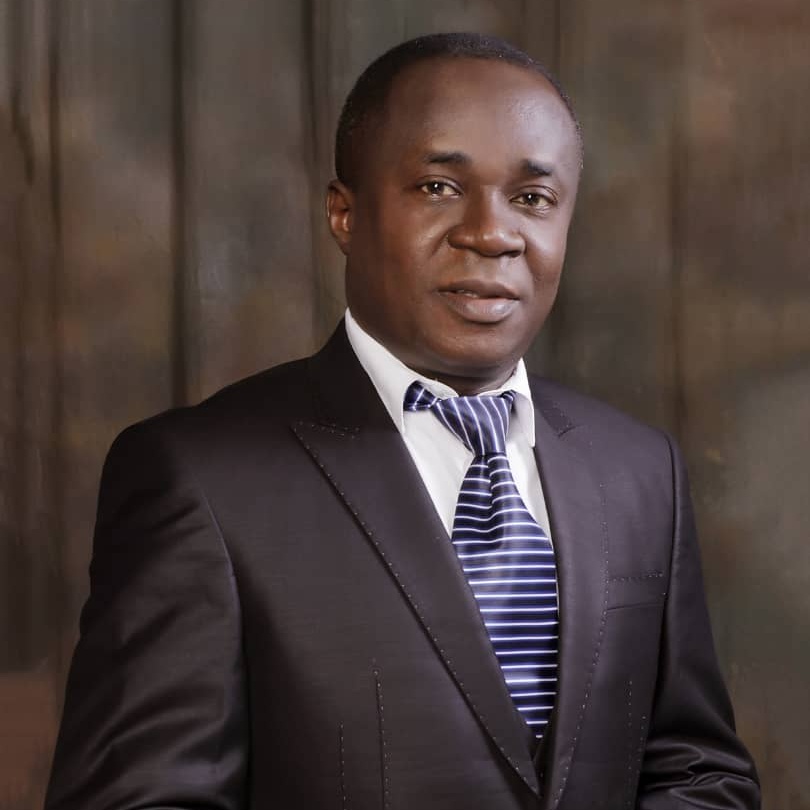In the last four years, President Muhammadu Buhari’s administration has not neglected air transportation infrastructure, but mixed reactions by Nigerians and stakeholders has continued to trail the sector even as the nation marks 59 years of nationhood. ADEOLA TUKURU reports.
Some industry followers are of the opinion that despite seeming passengers growth, the sector is shrinking and insists that concession of the nation’s airports will make them more efficient .
Experts said the sector needs a fundamental overhaul, pointing to opaque management practices, rampant corruption and risks for passengers from security and dilapidated infrastructure.
For instance, Arik Air, which has 60 per cent share of domestic flights and is the country’s biggest private carrier has found itself increasingly on the firing line of disgruntled passengers.
Earlier this year, irate passengers beat up one of its executives at Lagos International Airport after the third consecutive cancellation of their flight to Johannesburg.
Also in December last year, Arik operations were grounded by a 24-hour strike by employees demanding the payment of seven months’ salary arrears.
The result is that airlines in Nigeria generally have a short life span: in 35 years more than 40 operators have gone bust, including Nigeria Airways, which collapsed in 2003.
Dominance of foreign airline in the sector
An expert in the aviation sector, Engr Francis Akinwunmi expressed worries over the dominance of Africa’s aviation industry by the foreign line operators.
He said a situation where 80 percent of carriers operating in Africa are non-Africans leaves much to be desired adding that the air transport promotes trade , investments and tourism can not be over emphasized.
In his words “Today, Aviation Industry in Africa adds $73 billion to the continents annual GDP . It employs about seven million people with average of about 130,000 people per country in Africa”.
On hike in Air travel fare across Africa
Akinwunmi also expressed concern that the cost of air travel in Africa remains exorbitantly high saying that it is 200 percent higher than costs in European Union and 25 percent higher than cost in India for similar distance .
He urged investors in Africa growth as well as develop regional hubs to improve connectivity to invest more in airline business, pointing out that airport terminal capacity need to develop to expand passenger growth, as well as develop regional hubs to improve connectivity.
Debts
Blueprint observed that the airlines are heavily in debt and “taking advantage” of the country.
A staff at the Airport who pleaded anonymity said people operating without paying the fuel marketers, without paying their staff, without paying for the services they’re given (insurance, maintenance).
He said they are not making profit, the question is what do they really do with all this money?… They are selling tickets every day.
“As long as we don’t have a strong, credible, independent regulatory agency we cannot have a viable aviation industry in this country.”
In their defence, the airlines blame a lack of foreign currency that has left them unable to pay fuel suppliers or, in some cases, landing charges at airports outside Nigeria.
The fall in the price of crude on international markets has seen the naira currency lose value against the dollar and Nigerian banks no longer have enough liquidity.
Foreign airlines such as United and Iberia have stopped flights to Nigeria because of difficulties in repatriating profits in dollars.
In September last year, members of the House of Representatives asked the government to declare a state of emergency in the aviation sector, saying 160,000 jobs were at risk.
Strike
Just recently, Flight operations declared an indefinite strike in the Nigeria Civil Aviation Authority (NCAA).
The industrial action begins by 5:00am, according to the unions in a notice issued on Tuesday, saying the action followed the expiration of the seven-day ultimatum earlier issued to the Federal Ministry of Transportation (Aviation) and the NCAA.
The unions had threatened to shut down the sector over the present management structure (organogram) of the NCAA which they argued stifles career progression.
The notice of strike came a few days after the Minister of State for Aviation, Senator Hadi Sirika, appealed to the unions to embrace dialogue on the issue rather than shutting down the sector, saying the organogram could be “tweaked”.
Alleged corrupt activities in FAAN
Facts also emerged on the numerous corrupt activities going on in the Federal Airport Authority of Nigeria, (FAAN) to defruad and infringe huge discomfort on unsuspecting members of the public with little or no regard to the nation’s economic situation.
A passenger who also fell victim of the activities, one Abdulazeez Idris expressed dissatisfaction over the FG arrangement of carrying out tenonvation and expansion at the airport with no cog Isa mace attention to befitting parking space thereby causing hardship on motorists.
He lamented that the most frustrating thing is the fine of N25,000 for an offense one never committed .
While many are frustrated due to the ineffectiveness of the airport authority and lack of policy framework to legally generate revenue for commercial parking lots where drivers can conveniently keep their vehicles at very moderate charges for timing .
ART response
The President of the Aviation Round Table (ART) Dr. Gabriel Olowo said the challenges ahead demands that re-appointed Minister of Aviation, Hadi Sirika should hit the ground running as there is no need wasting time basking in the euphoria of the appointment.
The new road map charted for Sirika in his second term essentially revolves around investments in key infrastructure that will assist Nigeria’s aviation sector benefit from the African Continental Free Trade (AfCFTA) Agreement recently signed by president Buhari as a member.
The AfCFTA seeks to create a single continental market for goods and services, with free movement of business persons and investments, and thus pave the way for accelerating the establishment of the Continental Customs Union and the African customs union.
He said the next four years will have no room for rhetoric. “In fact 2019 is already gone and 2023 is election year. He has barely 24 months to write his name in gold. He should put all his focus on measurable deliverables,” Olowo added.
According to Olowo, it is important that Sirika resurrects his planned concession of airports. The target of the exercise, Olowo said should be to deliver two to three ‘Airport companies of Nigeria’.
He said these companies should be saddled with the task of putting down the requisite funds that will give Nigeria airport modern terminal buildings with installed high technologies and functional car parks.
“The aim should be to make the Lagos, Abuja, and Kano airports a formidable West African Hub by 2025. This is doable judging from the case study of Ghana’s achievement of a similar feat within a span of four years,” Olowo said.
Also, another member of the Aviation Round Table (ART), Cat. John Ojikutu, while lauding President Buhari for re-appointing Sirika said, “not returning him to the ministry and bringing a new person could have created a downward and dangerous trend.”
In his first four years, Sirika had committed the country into some long term projects with credits secured from local and foreign firms. Ojikutu said, “it would have taken more time before the new individual (as Minister) could gather confidence to consolidate on the previous achievements or move on a new path for any progressive development.”
“It would therefore be better to consolidate on the previous achievement by fine tuning their level of development within the specified timings to next level of development,” he added.
Ojikutu said: “Nigeria should also fine tune the plans to develop its commercial aviation infrastructures otherwise, we may have no product to compete with our contemporaries in the continent and contribute to the AFCTA.
On his part, Ojikutu suggested that with the plan for airport concession, FAAN should be upgraded to a Holding Company having all the terminals concession to private companies on behalf of the Federal Government.
Ojikutu said: “Give out all the 20 federal airports for concession at once to remove the burden of providing annual budgets for their maintenance and improvement from the government except recovery intervention.
“However, the concession must be limited to passenger and cargo terminal building, aircraft aprons and parkings, car parks, toll gates, land office building and any other non-aeronautical infrastructures,” he added.



